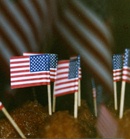All Nonfiction
- Bullying
- Books
- Academic
- Author Interviews
- Celebrity interviews
- College Articles
- College Essays
- Educator of the Year
- Heroes
- Interviews
- Memoir
- Personal Experience
- Sports
- Travel & Culture
All Opinions
- Bullying
- Current Events / Politics
- Discrimination
- Drugs / Alcohol / Smoking
- Entertainment / Celebrities
- Environment
- Love / Relationships
- Movies / Music / TV
- Pop Culture / Trends
- School / College
- Social Issues / Civics
- Spirituality / Religion
- Sports / Hobbies
All Hot Topics
- Bullying
- Community Service
- Environment
- Health
- Letters to the Editor
- Pride & Prejudice
- What Matters
- Back
Summer Guide
- Program Links
- Program Reviews
- Back
College Guide
- College Links
- College Reviews
- College Essays
- College Articles
- Back
Never Have I Ever Been Represented on TV
Do you all remember Phineas and Ferb, that Disney XD show about the two genius boys, the titular Phineas and Ferb? Every episode, the brothers and their ensemble of friends would be monkeying around with a new invention and turning their poor older sister Candace’s hair gray.
I loved it, I still have the entire theme song memorized. I’m one of those computer geeks so I loved all the fun inventions and science they showed. But Phineas and Ferb was one of the first places, I saw an Indian kid on American TV. Baljeet Tjinder. That scrawny kid with the curly hair and blue overalls? And you know, at first, I totally related to him. There was an episode, where the kids were trying to help one of their friends Isabella get rid of hiccups, and their bright idea was to dress up the things they most feared to scare her hiccups away. And Baljeet dresses up as an A-minus on a math test. I was laughing to the point of tears because that was the single most relatable thing I had ever seen on TV.
But then something changed. As the episodes went on, Baljeet would constantly be bullied by a buff dude named Buford and soon his relatable antics soon became annoying. Sure, I liked math, but I didn’t let other kids step over me like a doormat. I didn’t put black curtains in my house and go into mourning if I didn’t win the science fair. It got worse, when I started watching Jessie, another Disney Channel show, where one of the main characters, Ravi, was an Indian Boy adopted by a posh family in New York. He was bullied left and right and never stood up for himself. He was always totally oblivious about his surroundings and had the social tact of a toad. And at first, I was angry. Angry that this mangled,Jungle Book Mowgli inspired caricature of Indian-American kids was all I had. But as the episodes passed, the anger faded into a jaded, dull rage in the back of my head. I resigned myself to the fact that Indian-American kids were neither important enough or common enough to be shown on TV. I decided that if I wasn’t going to see my role model on TV, I would just be my own. My anger and insult had been reduced to the occasional disapproving scoff when people talked about how “diverse” TV is now and the occasional narrowing of my eyes at Jessie reruns I caught while flipping through channels on TV.
Fast forward a few years later to 2020, and I’m sitting at home during shelter-in-place scrolling through Netflix for something to binge-watch. And I see it “Never Have I Ever” and there’s an Indian teen smack dab in the center. I click the play button and suddenly I’m on a whirlwind adventure with Devi Vishwakumar, an Indian-American Sophomore girl, who’s both a Straight-A overachiever student and makes terrible decisions like getting drunk at a party and trying to pet a coyote. Most people would call ditching your best friends for a guy who barely acknowledges you, a bad decision. Most people would call throwing a textbook out of your window in anger irresponsible and reckless. I think it’s perfect. When Devi gets into heated arguments with her mother, I look at my own mom and we both laugh knowingly. When she totally wrecks her nemesis at a Model U.N tournament, I remember dominating my robotics club with the same spark. The series may seem like your typical high school drama, with dumb romances and popularity contests. And it is, that’s the best part. Devi is just your average highschool girl and that’s revolutionary. She’s everything I am and totally different at the same time. She so perfectly represents the Indian-American Teen experience, yet she has a story that is perfectly unique from every other Indian kid on the block.
And when I finished watching Never Have I Ever, I realized that I don’t hate Baljeet and Ravi anymore at all. They walked so Devi could run. They were the small steps in beginning towards the final goal. I guess you could say that Indian American teen representation has grown up from mousy weaklings like Baljeet and Ravi, to fierce queens like Devi. What a glow up!
I’ve also grown up a long way from being a temperamental toddler watching Phineas and Ferb, now I’m a temperamental teenager. I’ve gone from excitedly learning about Hinduism from my mom and grandma, to trying to change my name to Elizabeth, to embracing both my heritage and my country.
So let’s play a little game, I’ll Start “Never Have I been proud of being an Indian-American Teen”
Well, I am now.

Similar Articles
JOIN THE DISCUSSION
This article has 0 comments.
